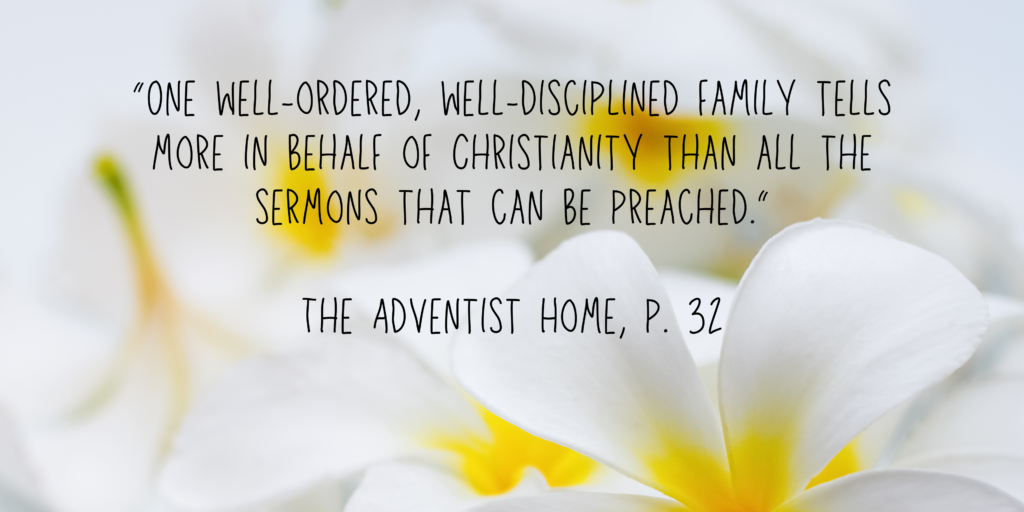Family Ministries Leadership Certificate Program

For all Conference/ Mission and Union Family Ministries Directors in the South Pacific Division
This leadership certificate program will be held at the South Pacific Division office in Wahroonga, NSW Australia. You can join via Zoom. Please contact your Union Family Ministries director for more information. This online training will include five 3½ hour Zoom sessions over five days.
The details for the event are:
Date:
14th – 18th August 2023
Time:
Sydney Time 9:00am – 12:30pm
Venue:
Online via Zoom
Cost:
This certificate is free for all Conference/ Mission and Union Family Ministries Directors in the South Pacific Division. On completion of the certificate, you are eligible for a certificate from Andrews University (at your own cost).
Facilitators:
- Willie and Elaine Oliver, General Conference Family Ministries Leaders
- Sven Östring, South Pacific Division Family Ministries Liaison
Topics
Module 1: Biblical and Theological Foundations for Family Ministries
Family Ministries upholds the biblical teaching related to the family and lifts up God’s ideal for family living. At the same time, it brings an undestanding of the brokenness experiened by individuals and families in a fallen world… It fosters reconciliation between the generations promised in the Elijah message of Malachi 4:5, 6 and extends hope and support to those who have been hurt by abuse, family dysfunction, and broken relationships.”
Seventh-day Adventist Church Manual, Revised 2010
This course on biblical foundations will look at several aspects of the relationship between the Bible and our work for families:
- How to make the most of the Bible as our textbook and discover the ways truth for family living has been revealed in Scripture.
- An introduction to a biblical theology of the family.
- A consideration of several major motifs in Scripture which serve as pillars for ministry to families.
Module 2: Family: Centre for Evangelism
Emissaries from Babylon once came to King Hezekiah of Judah out of interest in his miraculous recovery from a fatal illness and the supernatural sign linked with it – movement ten degrees backward of the sundial shadow. Hezekiah happily received these guests but seems to have been silent about his healing experience. He evidently put little or no emphasis on the things in his house that would have opened the hearts of these inquiring ambassadors to the knowledge of the true God. The contrast between his gratitude for being healed, which is recorded in Isaiah 38, and his silence about it in Isaiah 39, is striking. Hezekiah gave the ambassadors a tour that showcased his armory and expansive treasure. When they had left, the prophet Isaiah confronted him with a penetrating question: “What have they seen in your house?” (Isaiah 39:4). The question was sobering. Too late Hezekiah realized that his pride had led him to give away state secrets of national wealth and armaments. Even more importantly he had missed a rare opportunity to share the truth about God with these foreign ambassadors.
This state visit was a significant occasion, yet there is no record of Hezekiah’s seeking special guidance about it in prayer from the prophets or from priests. Nor did God intervene. Alone, out of the public eye, with no consultation with spiritual advisors, the work of God in his life and the life of his nation was not on his agenda. The intent of the historian in 2 Chronicles 32:31 may have been to show how easily God’s blessing can be taken for granted and how prone are the recipients of his mercy to become self-sufficient and fail to give praise that is due Him.
Module 3: Families in Society
Throughout our lives, many of our most profound joys, deepest sorrows, or ordinary moments have been associated with family relationships. It is not often that we pause to reflect on the influence that society has on these family experiences.
This module explores the importance of families in society. It is designed to assist students in developing a greater awareness of the impact of societal influences on families, from a global perspective to a local cultural perspective. The students will consider cultural and religious traditions and how these traditions have shaped current views and beliefs about families. It will also describe what is meant by a family system and help students to recognize the unique differences within family systems. Particular appreciation will be given to the structure and diversity of family types and how families change. The students will also be provided a basic introduction to several models for understanding how families deal with life-issues.
Module 4: Marriage and Family Dynamics
The Bible opens and closes with marriage. In the book of Genesis, marriage is the first institution established by God at creation while in the last chapters of Revelation marriage is presented as a metaphor to portray the relationship between Christ and His people. Marriage is uniquely positioned at the end of creation week as a declaration of God’s ideal for the human race. “Marriage is the foundational human relationship God gifted humanity with as the locus for developing and keeping a meaningful connection with Him” (Oliver & Oliver, 2015).
This module provides an introduction to biblical concept of marriage and key issues at the core of marriages and families. It outlines the characteristics of healthy marriages and families and ways in which these institutions created by God can e enriched and strengthened.
Module 5: Interpersonal Relationships
A man walks into a lumberyard and inquires,
“Do you have any 4 x 2’s?”
“Do you mean 2 x 4’s?” replies the clerk,
“I don’t know,” the man responds with a puzzled look on his face, “but let me check.” He walks back out to the parking lot and confers with another man in a pickup truck. Returning to the clerk, he replies, “Yes, we want 2 x 4’s.”
“How long do you want them?” asks the clerk.
Again, a look of bewilderment washes over the man’s countenances, “I don’t know,” he states hesitantly, “let me check.” He walks back outside to the pickup truck and speaks briefly with the driver. Once back inside he announces to the clerk, “We want them for a long, long time because we’re gonna build a house.”

